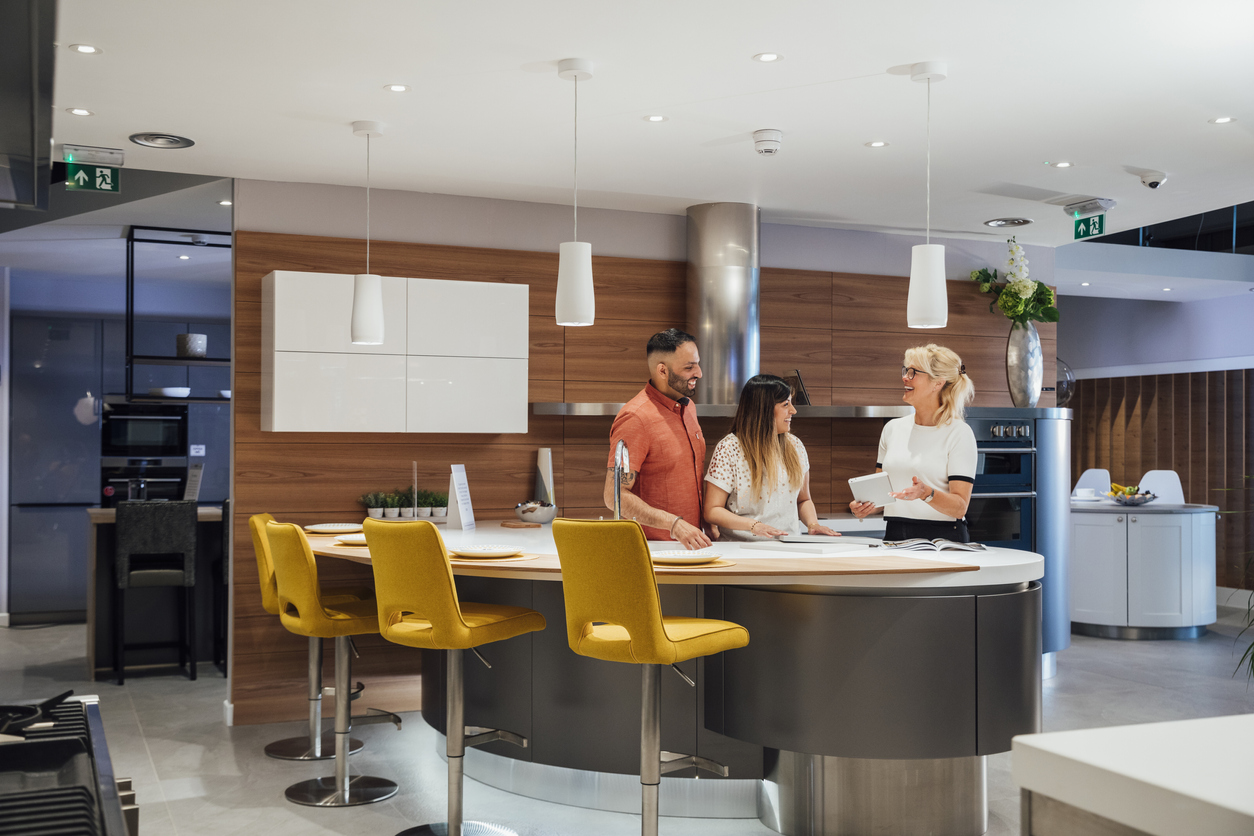Becoming the Destination of Choice
 Why do customers come to your showroom? Do they patronize your business because they know when they walk in the door that you will offer a big discount even if they don't ask for one? Do they come simply to see kitchens that they are considering, knowing that they can find them cheaper on the Internet or at the discounter down the street? Do they come to browse because they have been considering replacing their 25-year-old refrigerator with one that features smart technology and can order groceries through a personal digital assistant? Most likely the answer is no to all of the above. Most customers come to a kitchen and bath showroom because it is a destination. They come, as Bernadette Jiwa points out in a Story of Telling blog, because it is an experience, not simply to acquire products for a new kitchen or bath.
Why do customers come to your showroom? Do they patronize your business because they know when they walk in the door that you will offer a big discount even if they don't ask for one? Do they come simply to see kitchens that they are considering, knowing that they can find them cheaper on the Internet or at the discounter down the street? Do they come to browse because they have been considering replacing their 25-year-old refrigerator with one that features smart technology and can order groceries through a personal digital assistant? Most likely the answer is no to all of the above. Most customers come to a kitchen and bath showroom because it is a destination. They come, as Bernadette Jiwa points out in a Story of Telling blog, because it is an experience, not simply to acquire products for a new kitchen or bath.
Showroom owners and managers need to train their sales teams that their job is not to sell cabinets, appliances, backsplashes or organizing systems. When someone walks into a showroom where there are $100,000 kitchens and $20,000 appliances on display, they are not simply buying products made from solid wood, stone and PVD lifetime finishes. They are also buying the story. Showroom sales professionals and manufacturers connect customers to their brand's story. If your sales team is not passionate about the story and excited to share it with customers, they are missing opportunities to create value, connect with customers and make sales more easily.
What's the point of looking for unique products, pioneering brands, and differentiating your business from discounting competitors if your team does not understand or share your brand story and can explain what makes the products and services in your showroom deliver better experiences than customers could find elsewhere? As Jiwa points out, "There's no point in setting the stage if actors don't understand the importance of the script. A good story can't save a bad product, but it can make a good product great."
